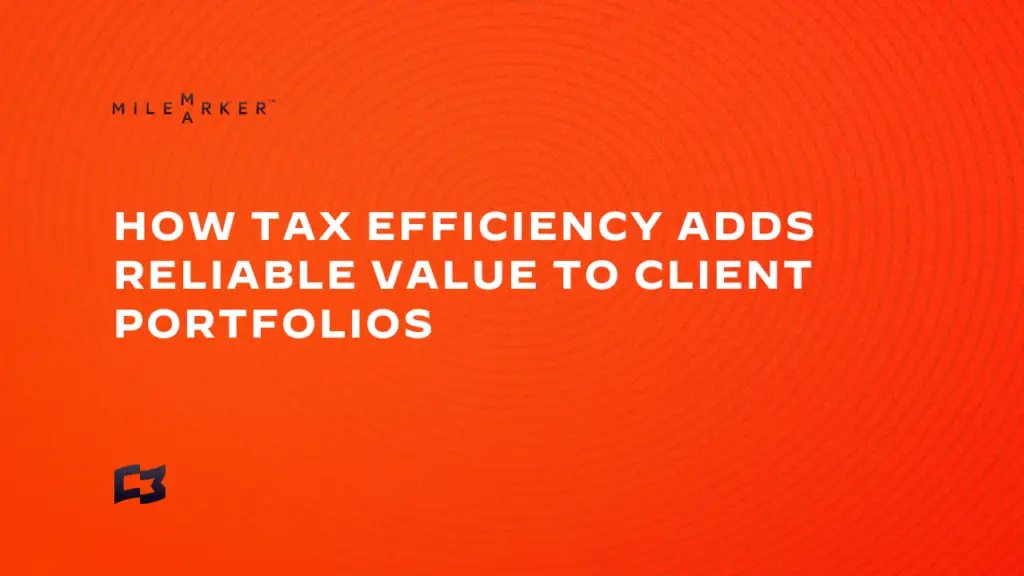How Tax Efficiency Adds Reliable Value to Client Portfolios

Tax efficiency is often the unsung hero of financial planning. While market performance dominates conversations, taxes have a direct and measurable impact on a client’s wealth. Understanding Tax Efficiency in Wealth Management is crucial, as Mark Weiskind calls this “tax alpha”—a crucial way advisors can add reliable value. Unlike market performance, which is unpredictable, taxes are a controllable factor that advisors can optimize for better results.
Why Tax Efficiency Matters
Taxes can significantly impact investment returns, yet they are often overlooked in financial planning discussions. Advisors who proactively implement tax-efficient strategies help clients retain more of their wealth, leading to better financial outcomes and demonstrating the importance of Tax Efficiency in Wealth Management.
Strategies such as minimizing capital gains taxes, leveraging tax-loss harvesting, and optimizing retirement withdrawals offer tangible benefits. For instance, if a client sells an asset with substantial gains, structuring the transaction to minimize tax liability can result in thousands of dollars in savings, showcasing the role of Tax Efficiency in Wealth Management.
Tax-Loss Harvesting: A Powerful Wealth Management Tool
One of the most effective ways to enhance tax efficiency in wealth management is through tax-loss harvesting. By strategically selling underperforming assets to offset capital gains, clients can reduce their taxable income while maintaining a balanced portfolio.
Similarly, advisors can guide clients on timing retirement account distributions to minimize tax burdens, particularly in retirement when cash flow management is critical. Thoughtful planning can prevent unnecessary taxes and ensure that clients maximize their income streams, emphasizing the significance of Tax Efficiency in Wealth Management.
Building Trust Through Tax Optimization
Tax optimization isn’t just about saving money—it’s about building trust and demonstrating value. Clients appreciate immediate, measurable results, and these wins strengthen the advisor-client relationship through effective Tax Efficiency in Wealth Management strategies.
For example, advising a business owner on tax-efficient ways to reinvest profits or helping a retiree navigate required minimum distributions (RMDs) can make a significant difference in their financial security. These personalized strategies reinforce an advisor’s expertise and deepen client confidence.
Tax Alpha: A Competitive Advantage for Advisors
The concept of “tax alpha” goes beyond technical expertise. It’s about understanding a client’s goals, circumstances, and long-term plans to tailor strategies that maximize their wealth. Advisors who master tax efficiency provide a level of service that sets them apart from competitors.
Importantly, tax efficiency is not a one-time strategy—it requires ongoing attention. Regular portfolio reviews, proactive adjustments to tax laws, and a commitment to identifying new opportunities ensure that clients continue to benefit.
Final Thoughts
By focusing on this controllable factor, advisors deliver reliable value that clients recognize and appreciate. Tax Efficiency in Wealth Management isn’t just an added bonus—it’s a core strategy that improves portfolio performance, enhances trust, and strengthens long-term relationships.
These insights are inspired by the latest episode of The Connected Advisor podcast featuring Mark Weiskind, Founding Partner at Fairway Wealth Management. Dive deeper into the importance of holistic advisory services. Listen to the full episode here and explore more articles in this series.
